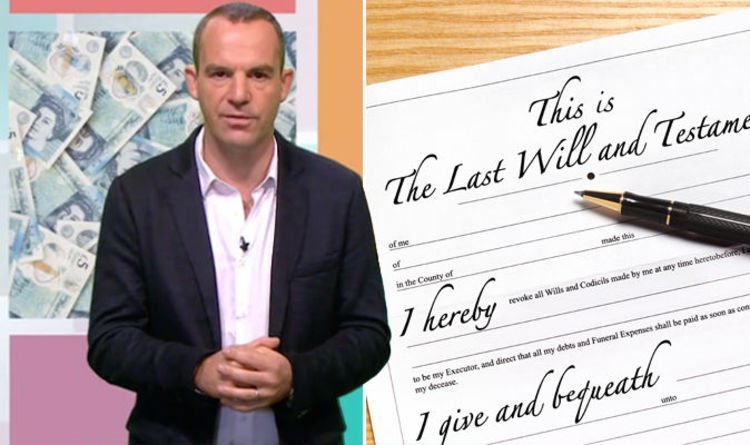Introduction: The Importance of Will Writing
Begin with an overview of why Martin Lewis Will Writing writing is crucial for protecting one’s future and ensuring that one’s wishes are honoured. Mention martin lewis will writing as a trusted authority on personal finance and how his insights can guide individuals through the process.
Understanding the Basics of Will Writing
What Is a Will?
- Explain the legal significance of a will and its role in estate planning.
Why You Need a Will
- Discuss the consequences of dying intestate (without a will) and how it can affect loved ones.
Martin Lewis’s Top Will Writing Tips
Start Early
- Emphasise the importance of planning ahead, regardless of one’s age or health status.
Be Clear and Specific
- Highlight the need for clarity in expressing wishes to prevent potential disputes.
Choose the Right Executor
- Offer guidance on selecting an executor and the responsibilities involved.
Common Pitfalls in Will Writing
Overlooking Minor Details
- Address how small oversights can lead to significant issues.
Failing to Update Your Will
- Discuss the importance of revising one’s will in light of life changes.
Legal Requirements and Considerations
The Legal Framework
- Briefly outline the legal requirements for a will to be valid.
Seeking Professional Advice
- Encourage consulting with a legal professional to navigate complex issues.
How to Safeguard Your Will
Secure Storage Options
- Discuss safe places to store a will and the importance of letting the executor know its location.
The Role of Witnesses
- Explain who can be a witness and the witnessing process.
Planning for the Unexpected
Guardianship and Trusts for Minor Children
- Highlight considerations for parents in appointing guardians and setting up trusts.
Digital Assets
- Touch on the increasingly important topic of including digital assets in estate planning.
Tax Implications of Will Writing
Understanding Inheritance Tax
- Provide a brief overview of how a will can affect inheritance tax liabilities.
Gifts and Donations
- Discuss how charitable donations can impact the estate’s tax responsibilities.
The Power of a Well-Crafted Will
Case Studies and Examples
- Offer anonymized examples of how well-planned wills have positively impacted families.
Conclusion: Taking Control of Your Legacy
End with a summary of the key points covered and encourage readers to take action on their will writing to secure their legacy and protect their loved ones. Stressing the idea that Martin lewis will writing, guided by expert advice like that from Martin Lewis, is an act of care and responsibility.
FAQ: Martin Lewis Will Writing Wisdom
Q: At what age should I start thinking about writing a will?
A: The best time to start thinking about writing a will is now regardless of your age. Martin lewis will writing suggests that as soon as you have assets or family considerations to think about it’s wise start the planning process.
Q: How do I choose the right executor for my will?
A: Choosing an executor is a significant decision. Look for someone you trust who is organised and will likely outlive you. martin lewis will writing recommendations considering the complexity of your estate and possibly appointing a professional if it’s particularly complicated.
Q: Can I write a will myself or do I need a lawyer?
A: While it is possible to write a will on your own especially with simple estate planning Martin Lewis advises the seeking of professional advice to ensure all legal requirements are met and to avoid common pitfalls.
Q: What should I do if my life circumstances change?
A: Martin Lewis will writing emphasises the importance of updating your will when life circumstances change such as marriage divorce the birth of a child or acquiring significant assets. Review your will regularly and make necessary adjustments.
Q: How do I handle digital assets in my will?
A: Digital assets are an increasingly important consideration. Include specific instructions in your will about who should access them and how. Martin Lewis suggests also leaving a secure but accessible record of your digital accounts and passwords.
Q: What are the implications of not having a will?
A: Dying without a will (intestate) means your estate will be distributed according to state laws which may not align with your wishes. Martin Lewis warns can lead to unintended consequences for your heirs.
Q: How can I ensure my will is legally valid?
A: For a will to be legally valid it must meet certain requirements such as being in writing signed by you and witnessed properly. Martin Lewis will writing recommendations for professional guidance to ensure these criteria are satisfied.
Q: What can be done to minimise inheritance tax?
A: Strategic planning including the use of gifts and donations within your will can reduce the inheritance tax burden on your estate. Martin Lewis will writing advised consulting with a tax specialist explore all available options.
Q: Should I include funeral arrangements in my will?
A: While you can include funeral wishes in your will Martin Lewis notes that wills are often read after funeral arrangements need to be made. It might be better to communicate these wishes separately to your family or executor.
Q: Where should I store my will?
A: Your will should be stored in a safe accessible place. Inform your executor of its location. Martin Lewis also suggests considering a solicitor’s office or a will storage service for added security.
By addressing these questions, the article can provide readers with actionable insights and clear guidance on Martin Lewis will writing process echoing the expert advice of Martin Lewis and ensuring that readers are well-informed about protecting their future and their legacy in a smart way.
